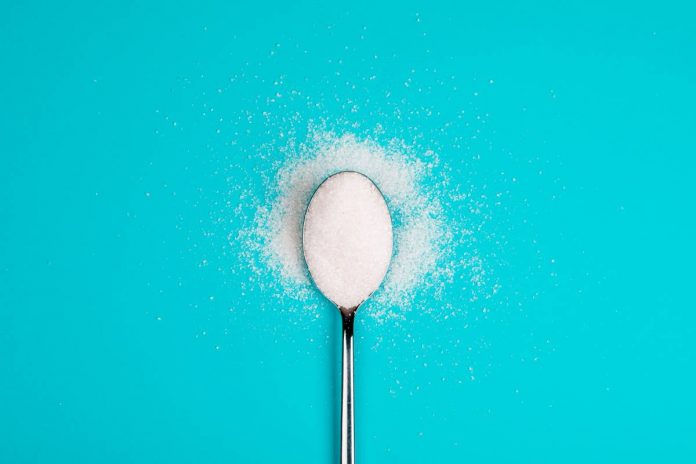
Does the nonnutritive, no-calorie sweetener sucralose really help you lose weight? Many people use low- or no-calorie sweeteners because they want to avoid the calories that natural sugar, aka sucrose, provides. How does sucralose compare with sucrose? Scientists have explored these and other questions in numerous studies, the most recent of which appeared in the JAMA Network Open.
First, however, let’s learn a little about sucrose and sucralose.
What is sucrose?
Sucrose, also known as table sugar, sugar, or granulated sugar, is a type of carbohydrate composed of glucose and fructose. It occurs naturally in fruits, vegetables, and nuts, and is also made commercially from sugar beets and sugar cane. Sucrose is considered a natural sugar when you consume it from whole foods (e.g., apples, carrots) and as added sugar when it’s found in processed or refined foods (e.g., soda, condiments, canned foods).
Read about new research shows sucralose does affect blood sugar and insulin
What is sucralose?
Sucralose is an extremely sweet (600 times sweeter than sugar) nonnutritive sweetener that actually begins its life as sugar. However, through the magic of chemistry, three specific hydroxyl groups on the sucrose molecule are eliminated and replaced with three chlorine atoms. This structural change prevents enzymes in the digestive tract from metabolizing the molecule so nearly all of the sucralose you consume leaves the body in stool while the rest is excreted in the urine.
Questions about the safety of sucralose and other artificial sweeteners are often asked. In the case of sucralose, the FDA has stated that it is GRAS (generally regarded as safe). However, there is evidence that sucralose may elevate insulin and blood glucose levels in some individuals.
A new study on sucrose and sucralose
In a new study published in JAMA Network Open, investigators explored the impact of sucrose and sucralose on healthy young men and women, some of whom were obese, in a randomized, crossover trial. On three separate occasions, the participants were given a drink that contained either sucrose, sucralose, or water.
Read about 5 artificial sweeteners that are (probably) making you fat
The goal was to look at how individuals’ brains responded to sucrose and sucralose and how their eating behaviors might change after consuming these sugars. The authors found that obesity and being female were both associated with greater responses in the brain to food in general as well as sweet food cues when the women consumed sucralose versus sucrose. The men did not have these responses. Women also consumed more calories in a meal after drinking sucralose when compared with drinking sucrose.
Bottom line
Based on the findings of this recent study, it appears that the non-calorie sweetener sucralose may cause women, and obese women, in particular, to be more attracted to food and to consume more calories than they would if they consumer sucrose (e.g., table sugar). While sucrose has calories and sucralose does not, this information is important to consider, especially among women who choose to consume sucralose.
It’s also important to note that it’s possible that frequent use of artificial sweeteners like sucralose may increase your desire for sweet foods in general, which could jeopardize your efforts to lose weight. All of these factors, as well as the health concerns associated with sucralose use, are reasons to pause before using this artificial sweetener.










